Episodes
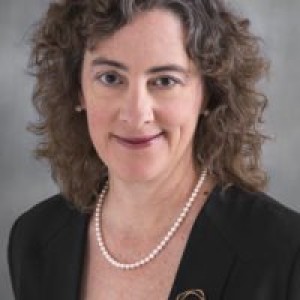
Monday Jul 08, 2019
Episode 067 - Maureen Condic, part III
Monday Jul 08, 2019
Monday Jul 08, 2019
-
The conversation involving Dr. Condic, Dr. Giesting and Schmitt turned to the complexities of the nation’s debate about abortion. That debate engages a mix of biological facts (which may or may not be probed in the full context of updated knowledge), personal experiences, and deeply held principles, positions, and emotions including authentic sympathy for the circumstances in which pregnant women find themselves. Although providing scientific insights is a crucial advancement of the debate because people deserve to have comprehensive information, the laying out of certain biological facts alone will not necessarily change minds, Condic said.
-
In many cases, much of the public presentation of the abortion controversy dividing people is manufactured, but there is room for honest discussion on particular grounds. We each can play a part in adding to human understandings in this controversy. People evolve their judgments on the wide scope of the debate incrementally over time.
-
But the search for a full overview is complicated; indeed, Dr. Condic referred to difficulties she and her brother Samuel Condic encountered (different vocabularies, etc.) in compiling their book Human Embryos, Human Beings. The book aims to bring together philosophical and biological insights about human life at its beginning. In short, the abortion debate requires us to spend more time in listening to each other, asking questions, probing the basis of people’s stances, and less time in simply lecturing, she said.
-
Paul talked about his experience with identical twins in his family. Twinning is a complex arena for understanding “who you are,” raising core questions with biological and philosophical implications. Our discussion around the microphone extended to research on the topics of compaction and chimeras. Condic has written a book that delves into the complexities. Untangling Twinning is scheduled for publication this summer.
-
There are also biological phenomena complicating an understanding of our human nature in sexual terms. There can be complex factors differentiating between one’s genetic sex and one’s hormonal sex, Condic said. A very small segment of the population has genetically compound sexual identities. Intersex disorders can occur in a variety of ways, although in the vast majority of cases questions of a person’s gender identity are not grounded in physical causes, Condic said. Studies in some areas raise questions within the LGBTQ community itself. Among many, endeavors focusing on a “gay gene” that would undergird a statement that “I was born this way” have been diminished by a view that gender identity is fluid or is driven by non-genetic factors.

Monday Apr 29, 2019
Episode 057 – The Best Thing Out There
Monday Apr 29, 2019
Monday Apr 29, 2019
Apologies for the sound quality today; Zencastr wasn’t working, so we recorded on Zoom, and even then there were problems with the audio especially in the latter half of the podcast.
The question we take up at the beginning of the Easter season is this: Why has Western society gone to such pains to throw away the best thing going, intellectually and otherwise?
In his ongoing podcast research, Paul has come across the Pat Flynn Show, and listened to some really good interviews with Fr. Robert Spitzer (a TSSM interviewee) and Ed Feser (whose talk at the 2018 Society of Catholic Scientists conference was the topic of one of our most popular episodes). Bob Spitzer’s interviews in particular were some of the most inspiring things I’ve encountered recently and really led me to propose this series of conversations with Bill about how Catholic Christianity is the best way of looking at the world.
Of course, Western society has drifted hard away from its roots in classical Greek and Jewish/Christian heritage. Ireland is the most recent example of a society, one of the last to retain a semi-traditional cozy relationship between the Church and the state, now deciding to punish the Church for the crimes of the hypocritical members of its clergy by trying to erase its very history. Progressivism in general replaces traditional dogmas with dogmas-of-the-day, and the record up to this point has been pretty dismal.
We spend some time discussing the roots of what the contemporary West seems to consider its greatest achievement, modern science, in the critical tradition of Scholasticism (knowledge of which was practically the first thing to go after the Reformation began the process of intellectually punishing the Church). We would do better to have a broader memory of the Scholastic tradition even among us Catholics...to recall that it was a movement in which Thomas Aquinas was embedded, rather than remembering only him. In our time as well we don’t need single hero figures, we need a community. The scientific community knows this very well.
We go on to consider what this fraught term “dogma” really means. The Christian dogmas are really testimony, and they can’t change without repudiating the unrepeatable testimony of the events of salvation history. This is the context of the warnings at the end of the Apocalypse of John, “cursed be he who adds or takes away from the words of this book.” As Chesterton and many others have pointed out, these dogmas are not a straightjacket but a foundation and structural members that allow us to build both intellectual structures and actual human lives that don’t sink into the morass of changing human inventions. Admittedly there are many Christians, Catholics included, who seem to take comfort in the false idea that the Bible, or Tradition, provides us all the answers we could possibly want to know and there is no need or use in further growth. That is not the teaching of Jesus when he commented that the Spirit would [future] lead us to all truth.
The high Middle Ages confronted the question of harmonizing Aristotle with Jesus Christ. This was both a creative and a logical process that led to great works of criticism and synthesis… excellent practice for the scientific process as we now know it.
A reminder that the Society of Catholic Scientists Conference is approaching June 7-9. Registration is open through May 15.
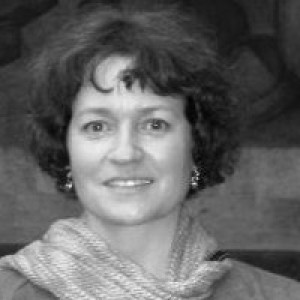
Monday Apr 22, 2019
Monday Apr 22, 2019
Today we present the second half of the interview with Darcia Narvaez, social scientist at Notre Dame and a specialist in childhood inculturation, attachment, and bonding issues.
We start out this half of the interview with a discussion of what Karl Polyani called the "great transformation" of European society, involving the breakdown of the pre-modern order and its safeguards for a stable population by means of understandings about community use of land, perhaps resulting in the popularity of emigration to the New World by dispirited, dispossessed, and to some extent dangerous people.
Several times Darcia disparages "hierarchy," understood in its general sense of social stratification, which she or other who have influenced her theorize to have caused huge social catastrophes, including the corruption of the Christian Church by its integration into the late Roman state and the collapse of populations and cultures in the New World on contact with the colonizers from Europe. Late in the podcast I ask her explicitly whether there is any benefit to civilization... let us know in the comments on Facebook or Podbean what you think about the answer!
Darcia's claim is that humans are by nature more egalitarian than other animals. This goes right down to childrearing, where human children, born so completely needy, have an innate expectation that their requests for assistance will be met. She comments that there is a Native American word, "wetiko," that was used to describe an attitude thought of as akin to a sickness that characterized those who acted in an aggressive and exploitative way toward others. Whether or not premodern peoples were all more free of this, it's certainly a common feature of civilized peoples. The Old and New Testaments certainly testify to this, and the need to confront it with compassion and an egalitarian attitude. We discussed the specific example of the disease of the large organization, society, business, or government, in which those at the top are simply disconnected, both intellectually and morally, from those at the bottom.
We mentioned subsidiarity, and might have mentioned clericalism... the social science of these concepts will hopefully be fodder for future podcasts.
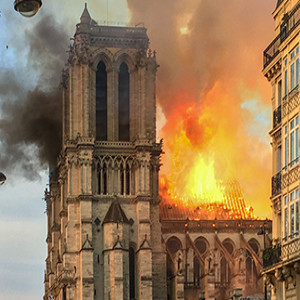
Friday Apr 19, 2019
Post Christian - What Are Churches For?
Friday Apr 19, 2019
Friday Apr 19, 2019
Photo by LeLaisserPasserA38 - Own work, CC BY-SA 4.0, https://commons.wikimedia.org/w/index.php?curid=78064310
I was minding my own business, trying to do a little work on my aunt's laptop while mine is in the shop, when I noticed this Washington Post article about 1) massive donations to repair Notre Dame de Paris after its roof caught fire on Monday, taking the 19th century spire with it, and 2) criticisms of the hyper-wealthy people who will open their checkbooks to replace a European landmark but not whatever other social causes the critics think most important.
My first thought on seeing the fire was simply, "How does this still happen?" Fires have of course consumed any number of cathedrals, palaces, temples, city halls, fortresses, and other buildings of note over the centuries, but we have an awful lot of fire suppressant and monitoring technologies these days. Repair work of some kind was already going on as shown by the scaffolding over the roof prior to the fire.
The article drew out a second line of thought that had been lurking in the back of my mind. France is of course the birthplace of modern Western secularism, the country where the hypocrisy of the Catholic Christian establishment yielded directly to the raging adolescent fury of revolution. It is where the modern pattern of punishing Christianity for the sins of the hierarchy and political establishment by pretending it never had any intellectual foundation was first constructed.
It's a mercy, in that environment, that so much of France's medieval legacy survived in the form of art and architecture. In a way it's good that the French opinion of their own culture is so staggeringly high. Yet these churches are so empty. When I visited France in 1998, I was deeply saddened by this. I wandered through many of these churches in Paris, Saint-Malo, Tours, and Amboise. The churches whose names you might recognize are kept up as museums; there are many, less famous, that are falling into decay even within towns like Amboise. The sprinkling of priests and faithful is spread across the remaining churches exceedingly thinly.
It all makes me feel a little better about our situation here in the United States. Still, when my local parish was holding its campaigns to rebuild the 19th century church and 1920s school building, I kept thinking, "I am glad that we can be this generous to repair roofs and redo tuckpointing... how about we put out this effort to fill these buildings with new people hearing the Good News about how Jesus can actually be in their lives after we rebuild them?"
I listened to two podcasts by Bishop Robert Barron and John Stonestreet of the Colson Center about the fire and how it has been discussed in the media. They commented that today's secular culture wants to focus on Notre Dame de Paris as simply a landmark, an icon of French culture, a pretty building from a long time ago. The desire seems to be to strip this structure of its builders' purpose: to construct a memorial to the transcendent human being whose death we commemorate today, and all the truths that come to us after recognizing him. A memorial place in which the True God, the Being upon which all reality is constructed and the Creator that constructed it, could be worshipped in that man's name.
To be fair, I think the culture of modern media does this to almost everything. We live in such a shallow time. When we confront memorials of centuries past, whether buildings like Notre Dame or books or works of art, we would do better to consider for a while why their makers did what they did and whether human beings with a different outlook on life have something to teach us, or to remind us.

Monday Apr 15, 2019
Episode 055 - Darcia Narvaez on socialization and isolation
Monday Apr 15, 2019
Monday Apr 15, 2019
Find Darcia's writings and resources across the internet:
Resource Page at Psychology Today
Topics we discussed in this podcast:
The human need for socialization from the very beginning, and ways that goes awry in contemporary society.
Things we can do to learn some of these lessons later in life:
- Self-calming via breathing, meditation, prayer. (Does our contemporary culture of outrage stem from a lack of the ability to calm ourselves that we are meant to learn starting in infancy?)
- Build a social network. We were meant to have interaction with an extended family that spans all age ranges for proper socialization. It's not too late to play with children, talk to the elderly, interact with people at other stages of life.
- Learn new languages and interact with people in different cultures. What are their reasons for doing the things that they do?
- Spend time with nature.
- Practice going outside yourself, defusing rigid thinking and attachment to "it has to be done this way." Intelligence is a measure of flexibility as much as anything.
Bill asked about social media and our tendency to seek out those who already agree with us. Darcia noted that we need guidance on how to socialize. Up through age 30 or so, it's natural for human beings to get that kind of guidance from others. Unfortunately we get that guidance through TV and video games now.
As usual, this was the first half of our interview. More discussion and more questions than we could possibly answer next time!
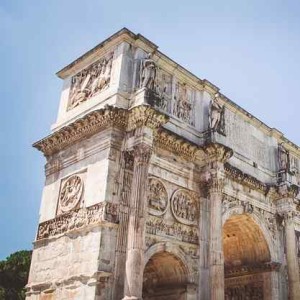
Tuesday Apr 02, 2019
Post Christian: Ideals and Means
Tuesday Apr 02, 2019
Tuesday Apr 02, 2019
It's fascinating to me how well progressivism is explained by two aspirations:
- Trying to be more Christian, which is to say more kind, enlightened, truthful, and focused on what really matters in life, than Christians. (A common lie that progressives tell themselves is that Christians really aren't concerned about these things... they are of course aided and abetted by the large quantity of half- or quarter-hearted Christians out there.)
- Trying to do this really impossible thing without any recourse to a God that actually loves them or has any particular purpose for the world.
In reality, of course, something has to give, and that something is either the ideals or the means.
If the means break down, then the progressive is forced to give up on straight secularism and goes searching for some kind of enlightenment... possibly a form of post-Protestant Christianity (or post-Reform Judaism) that they can have on their own terms, or some kind of imported spirituality that can likewise be sampled cafeteria-style to get around whatever it might be in their life that they're not willing to let go: some sexual practice they insist is not only okay, but mandatory, or some pain they suffered at the hands of institutional Christians that they intend never to forgive the church or Church for allowing, etc. Still, this seems to me to be by far the better path. Part of the truth and the power that God gives to humanity, whether or not they know the name and the mission of Jesus of Nazareth, is better than none of it.
If the ideals break down, they seldom break down all the way. Unfortunately, the easiest thing to do is to sneer at other people, the rich and powerful but also the wife-beater-wearing Trump voters, for doing destructive things while making excuses for themselves. They continue to drive their SUVs an hour each way to work so they can live in their 3,000 square foot house in a neighborhood where they feel "safe," i.e., away from black folks. They may post something on social media about how horrible it was that so-and-so molested or sexually harassed people, while continuing to sabotage their own relationships via pornography, masturbation, or just generally refusing to confront their fear to engage in honest intimacy with friends or sexual partners or spouses or children.

Monday Mar 18, 2019
Monday Mar 18, 2019
What do we want to do in this podcast?
Goals for the year
Values of experience, e.g. Mexico: solar ovens from recycled materials
Credit consulting, etc., for exploited women in Mexico
The little estate in Mexico
Back to credit cards & exploitation of ignorance
Responsibility of those to whom much is given
Bringing it around to science
Career and sacrifice and little deaths
Chris, the handicapped man at the ND Center for Social Justice
The ethics of "fixing" or preventing Chris from being the way he is
The lack of philosophic background and the intellectual amnesia of contemporary science
Philosophy of science and the disappointment of 20th century physics, but the culture goes on unaware
Science, fundamentally cannot replace faith
...this is where Patricia makes that claim that science is about control
Ethics of changing human beings, other elements of creation
Bill poses the relativism question again
Patricia responds that "you can control science"
Everyone confronts the same Reality, and we cannot control it, but we prefer the illusion that we can

Saturday Mar 16, 2019
Bonus Episode - Patricia Bellm: Miguel from Mexico
Saturday Mar 16, 2019
Saturday Mar 16, 2019
The blind man who could see more than his neighbors... asking Patricia about German reunification
The industries that used up his sight
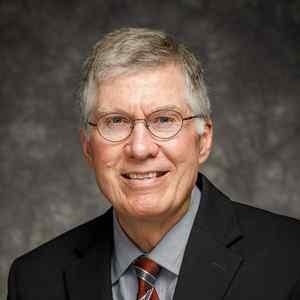
Monday Feb 11, 2019
Episode 046 - Daniel Hinshaw and the frontier between medicine and faith
Monday Feb 11, 2019
Monday Feb 11, 2019
I started off this part of the interview by asking Daniel about his own journey through life and faith. His early love was history, despite having a father who was also a doctor and an academic. His interests only turned to medicine after a time in Peru and exposure to brutal poverty, and then like many of us, he drifted into an academic career. Later in life he has been able to return to that original motivation.
Daniel and his wife were brought up in the Seventh Day Adventist faith, and still greatly respects the grounding in charitable work and the Bible he received then. Eventually he and his wife got the Newman bug and had to go deep into history and join one of the apostolic churches; they joined an Eastern Orthodox church.
In that context, Daniel laments the drift of the modern hospice movement away from Christian spiritual roots and into a secular, palliative mindset, and the broader question of what is missing from the often uttered or thought statement, "if it's legal, it must be moral."
"We confuse technological prowess with being deeper and more thoughtful."
An interesting consequence of our medical progress is that we now face a future where, for the first time, across the world, most people will die of conditions derived from aging rather than contagious diseases, accidents, childbirth, etc.
We discuss a bit the golden mean to be found, steering clear of euthanasia on the one hand, and of resorting to excessive means to stay alive in the face of a fatal illness.

Wednesday Dec 05, 2018
Bonus Episode - Nicolaus Steno
Wednesday Dec 05, 2018
Wednesday Dec 05, 2018

